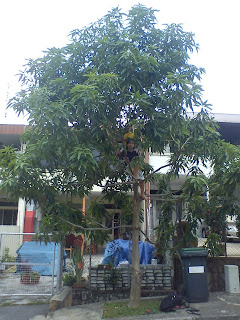Being married, monogamous and yet having a meaningful relationship with one's spouse seems a tall order nowadays. Psychiatrist M Scott Peck's discourse on the topic of love differentiates between love and being "in love". Love is not a feeling but an activity, defined as the willingness to extend oneself for one's own and another's spiritual growth.
The notion of romantic love that seems to pervade society today engulfs me sometimes.
From reading Mills & Boon to watching Sex and the City, I am seduced to believe that I am not truly in love unless I have that incredible "I'm in love" feeling.
At times, I possess feelings of love for other men and am tempted to act on those feelings. In an age of regular iPhone upgrades, we sometimes wish we could upgrade our spouse or we would begin to look for alternatives.
One gets to see one's spouse in his better moments but more often in his worse. Therefore, when we meet other men, when the opportunity arises, it is easy to fall in love.
They seem more caring, more sensitive to our needs, more in tune to our emotions. They seem more handsome, respectable, strong and stable. These are signs of falling in love.
Has one ever wondered what would happen if these upgrades stay for a year or more? Being accustomed and addicted to the feeling of love, one would soon be looking for the next upgrade.
Peck warned us to be careful of the "in love" feeling for two reasons. First, falling in love is specifically an erotic experience, which explains why most adulterous relationships often focus on sex. Second, this feeling is always only temporary.
The test of true love is to practise delayed gratification. One would stop and think.
A genuinely loving individual would take loving, constructive action if feelings develop for another man: Walk away and stay committed to the person one has vowed to build a life with together.
The notion of romantic love that seems to pervade society today engulfs me sometimes.
From reading Mills & Boon to watching Sex and the City, I am seduced to believe that I am not truly in love unless I have that incredible "I'm in love" feeling.
At times, I possess feelings of love for other men and am tempted to act on those feelings. In an age of regular iPhone upgrades, we sometimes wish we could upgrade our spouse or we would begin to look for alternatives.
One gets to see one's spouse in his better moments but more often in his worse. Therefore, when we meet other men, when the opportunity arises, it is easy to fall in love.
They seem more caring, more sensitive to our needs, more in tune to our emotions. They seem more handsome, respectable, strong and stable. These are signs of falling in love.
Has one ever wondered what would happen if these upgrades stay for a year or more? Being accustomed and addicted to the feeling of love, one would soon be looking for the next upgrade.
Peck warned us to be careful of the "in love" feeling for two reasons. First, falling in love is specifically an erotic experience, which explains why most adulterous relationships often focus on sex. Second, this feeling is always only temporary.
The test of true love is to practise delayed gratification. One would stop and think.
A genuinely loving individual would take loving, constructive action if feelings develop for another man: Walk away and stay committed to the person one has vowed to build a life with together.
This was first published in TODAY on 26th Dec 2012




